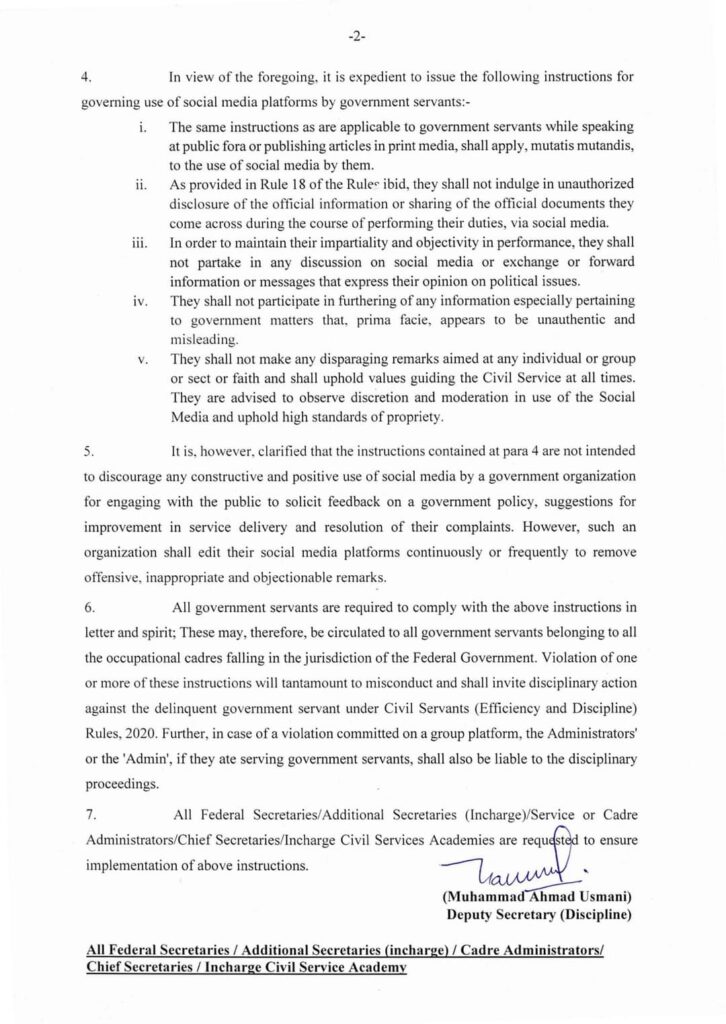Social Media Guidelines for Government Servants

Introduction
In an era where social media platforms have become an integral part of our lives, it’s imperative to establish guidelines for their use, especially by those in positions of power and authority. Government servants, being public figures, need to be mindful of their online conduct to maintain public trust and credibility.
Key Guidelines
- Adherence to Public Conduct Rules: The same guidelines that apply to government servants while speaking at public forums or publishing articles in print media should also be followed on social media.
- Confidentiality and Data Security: Government servants must not disclose confidential or official information on social media platforms.
- Impartiality and Objectivity: They should refrain from expressing personal opinions on political issues and avoid participating in discussions that could compromise their impartiality.
- Fact-Checking and Authenticity: Government servants should verify the authenticity of information before sharing it, especially regarding government matters.
- Respectful Conduct: They should avoid making disparaging remarks about individuals, groups, or sects and uphold the values of the Civil Service.
Constructive Use of Social Media
While the guidelines aim to prevent misuse of social media, they don’t discourage its constructive use for:
- Engaging with the Public: Government organizations can use social media to solicit feedback, suggestions, and complaints from the public.
- Promoting Transparency: They can share information about government policies, initiatives, and achievements.
- Building Relationships: Social media can be used to foster positive relationships between government and citizens.
Disciplinary Action
Non-compliance with these guidelines will be considered misconduct and may lead to disciplinary action against the offending government servant. Administrators or “admins” on group platforms who are also government servants will be held accountable.
Implementation and Monitoring
All federal secretaries, additional secretaries, cadre administrators, chief secretaries, and in-charge civil service academies are responsible for ensuring the implementation of these guidelines.
FAQs
- Can government servants express personal opinions on social media? No, they should refrain from expressing personal opinions on political issues.
- Are government servants allowed to share official documents on social media? No, they must not disclose confidential or official information.
- What happens if a government servant violates these guidelines? They may face disciplinary action, including termination of employment.
- Can government organizations use social media for advertising? Yes, government organizations can use social media for advertising, but they must adhere to the guidelines.
Conclusion
The guidelines outlined in this article provide a framework for government servants to use social media responsibly and effectively. By following these guidelines, government servants can contribute to a more transparent, accountable, and responsive government.
